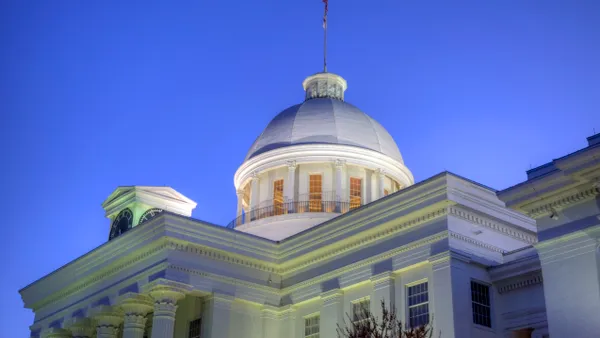Dive Brief:
- Sacramento, California-based Golden 1 Credit Union has seen a 28% increase in approvals to protected classes of borrowers since it started using artificial intelligence for loan decisions, its CEO, Donna Bland, said last week at America’s Credit Unions’ Governmental Affairs Conference.
- The credit union knew it was losing solid loans to other lenders due to faulty data, Bland said. So Golden 1 partnered with Zest AI to build its own customized credit scorecard.
- Golden 1 is using data not only from the credit union’s membership in the algorithm but also from other Californians “who looked like our membership” to help grow the database, Bland said.
Dive Insight:
Golden 1 launched the scorecard in December 2022 — first with credit cards and, then last year, with unsecured and auto loans.
The results have been more powerful than the credit union even envisioned, Bland said. The AI-driven scorecard led to higher loan approvals overall but especially among protected classes, including women, Latinx and Black people, and members older than 62, the executive said.
“What that means for us is that we’re no longer denying tens of thousands of people,” Bland said. “We originate over $6 billion in loans a year … and that not only means Californians have more access to equitable credit, it's also good for the credit union and our financial position.”
Oak Ridge, Tennessee-based ORNL Federal Credit Union also partnered with Zest AI to help the institution make better lending decisions, CEO Jenny Vipperman said.
For the $3.6 billion-asset credit union, “one size does not fit all” when it comes to rating potential borrowers.
“A national score was the best that we had when it was the best that we had,” Vipperman said. “But today, I’m looking for a score that can look at my fellow Tennesseans and saying ‘what they’re using to make a decision in California cannot possible make the most accurate decision in Tennessee.’”
Bland said more relevant information is critical for scoring potential borrowers and making better loan decisions. She said Golden 1’s membership is composed completely of Californians, but that demographic is different from the nation as a whole.
“California financial-wise can be very different from other parts of the nation,” she said. “So relying on national and traditional scoring models can paint the wrong picture when the credit union is making loan decisions.”
At $21.1 billion in assets, Golden 1 is the sixth-largest credit union in the country but the biggest using AI for lending.
Jennifer Golbeck, director of the social intelligence lab at the University of Maryland, said financial institutions must be careful when deploying AI for credit decisions. She pointed to a situation in 2008, where the algorithm being used by Wells Fargo to make mortgage decisions was found to have racial biases.
Race was not a part of the data, but the algorithm picked up on the fact that decisions made by Wells employees led to certain populations being pushed into subprime mortgages where whites with the same financial profile were not.
"If humans are racially biased in the way that they’re handing out mortgages, the algorithm is going to learn to do that, too,” Golbeck said. “AI has this veneer of objectivity, but because what it does is replicate our decision-making, it replicates our biases as well.”














